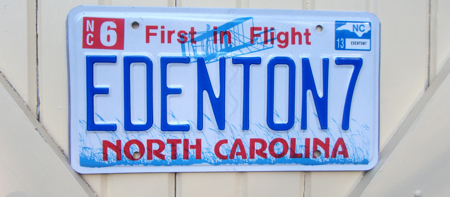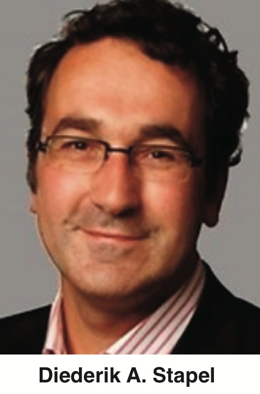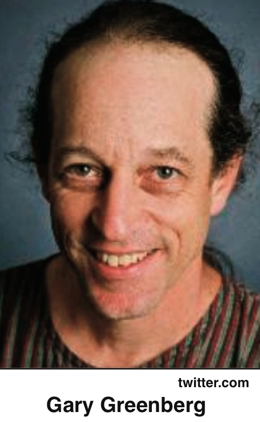Rascals case in brief
In the beginning, in 1989, more than 90 children at the Little Rascals Day Care Center in Edenton, North Carolina, accused a total of 20 adults with 429 instances of sexual abuse over a three-year period. It may have all begun with one parent’s complaint about punishment given her child.
Among the alleged perpetrators: the sheriff and mayor. But prosecutors would charge only Robin Byrum, Darlene Harris, Elizabeth “Betsy” Kelly, Robert “Bob” Kelly, Willard Scott Privott, Shelley Stone and Dawn Wilson – the Edenton 7.
Along with sodomy and beatings, allegations included a baby killed with a handgun, a child being hung upside down from a tree and being set on fire and countless other fantastic incidents involving spaceships, hot air balloons, pirate ships and trained sharks.
By the time prosecutors dropped the last charges in 1997, Little Rascals had become North Carolina’s longest and most costly criminal trial. Prosecutors kept defendants jailed in hopes at least one would turn against their supposed co-conspirators. Remarkably, none did. Another shameful record: Five defendants had to wait longer to face their accusers in court than anyone else in North Carolina history.
Between 1991 and 1997, Ofra Bikel produced three extraordinary episodes on the Little Rascals case for the PBS series “Frontline.” Although “Innocence Lost” did not deter prosecutors, it exposed their tactics and fostered nationwide skepticism and dismay.
With each passing year, the absurdity of the Little Rascals charges has become more obvious. But no admission of error has ever come from prosecutors, police, interviewers or parents. This site is devoted to the issues raised by this case.
On Facebook
Click for earlier Facebook posts archived on this site
Click to go to
Today’s random selection from the Little Rascals Day Care archives….
Click for earlier Facebook posts archived on this site
Click to go to
Today’s random selection from the Little Rascals Day Care archives….
Honk if you believe that….
 July 20, 2012
July 20, 2012
… Little Rascals parents were caught up in a frenzy of panic and misinformation.
… Ill-prepared therapists served prosecutors, not their patients.
… In their zeal for convictions, prosecutors behaved cruelly and unethically.
… 20th century North Carolina never saw a more sweeping injustice.
… Bob and Betsy Kelly, Dawn Wilson, Shelley Stone, Robin Byrum, Darlene Harris and Scott Privott deserve full and unequivocal exoneration.
Supposed debunking of moral panic is itself spurious
 May 10, 2014
May 10, 2014
“The failure to obtain convictions (in the McMartin Preschool case) combined with massive press coverage during and after, which ‘taught’ the American public various ‘lessons’ about child sex abuse, from child suggestibility to the notion that one must guard against ‘hysteria’ on such issues.
“The Witch-Hunt Narrative (by Ross Cheit) examines the evidence in the McMartin case as well as other widely reported cases, and gathers other sources on the phenomenon, to conclude that the McMartin case and reporting led to a paradigm of treating charges of abuse as a witch hunt rather than legitimate. This book goes a long way to debunk the paradigm, because there was compelling evidence for conviction….”
– From “Book of the Week” by Marci Hamilton at Hamilton and Griffin on Rights
Are we now witnessing the beginning of a belated backlash to the backlash over the “satanic ritual abuse” prosecutions? Contrary to Professor Hamilton’s enthusiastic review, Ross Cheit’s 544-page tome is riddled with inaccuracies, distortions and a shocking number of crucial omissions. Fortunately Debbie Nathan and the National Center for Reason and Justice have responded with a devastating point-by-point refutation – about which more later….
Update: I asked Hamilton, who teaches at Benjamin N. Cardozo Law School, Yeshiva University, to read Nathan’s piece and reconsider. Her response: “We will have to agree to disagree.”
‘Lack of rigor’ is nothing new in the social sciences
 Nov. 4, 2013
Nov. 4, 2013
“It’s not a great time for psychology. Diederik A. Stapel, a Dutch social psychologist, has recently confessed to serial fraud. That he gamed the peer review process of his field’s best journals so often and for so long calls into question the quality-control mechanisms of academic psychology. If garbage can pass peer review, as long as it is well-written and well-formatted garbage, then the authority conferred by appearing in peer-reviewed publications would seem to be slight….
“Most work in the psychological and social sciences suffers from a lack of conceptual rigor. It’s a bit sloppy around the edges, and in the middle, too…. It’s as if the precision of the statistical analysis is supposed somehow to compensate for, or help us forget, the imprecision of thought at the foundation of the enterprise.”
– From “Barbara Fredrickson’s Bestselling ‘Positivity’ Is Trashed by a New Study” by Will Wilkinson at the Daily Beast (Aug. 16, 2013)
The contemporary cases Wilkinson cites and the episodes of the day-care ritual-abuse era bear many dissimilarities. But they share all too closely the practitioners’ use of “the precision of the statistical analysis… to compensate for, or help us forget, the imprecision of thought at the foundation of the enterprise.”
Richard Kluft, ‘advocate of moderation’?
 Feb. 28, 2014
Feb. 28, 2014
As noted by Gary Greenberg, Richard Noll’s disappeared history of psychiatry and satanic ritual abuse “singles out two psychiatrists – Bennett Braun and Richard Kluft – who were instrumental in giving legitimacy to the SRA accounts. They helped change the DSM to make Multiple Personality Disorder (thought to be caused by the abuse) seem more common, they started the International Society for the Study of Multiple Personality and Dissociation, and they founded a journal called Dissociation….”
If the SRA era was psychiatry’s Wild West, then Braun and Kluft were… who? Butch and Sundance? Or Frank and Jesse?
In “Rewriting the Soul: Multiple Personality and the Sciences of Memory” (1995) philosopher Ian Hacking pointed out an editorial in Dissociation in which Kluft “pleaded for moderation, but… acknowledged that powerful emotions were at work. He also raised the stakes by printing a comparison that I find rather odious. He noted that one party refers to Nazis and the Holocaust, asking, ‘Should he or she be silent, emulating the “good Germans” who did not speak out about the atrocities in their midst, and by his or her silence become a facilitator?’”
Despite such overheated comparisons, and his ludicrous estimates of an epidemic of “multiples,” Kluft at least claimed “moderation” – not so Braun, whose excesses in patient treatment led to suspension of his Illinois medical license, closure of his hospital MPD unit and at least four out-of-court settlements, one for $10.6 million.
Today he practices in obscurity, while Kluft concentrates on stifling publication of incriminating journal articles.











0 CommentsComment on Facebook